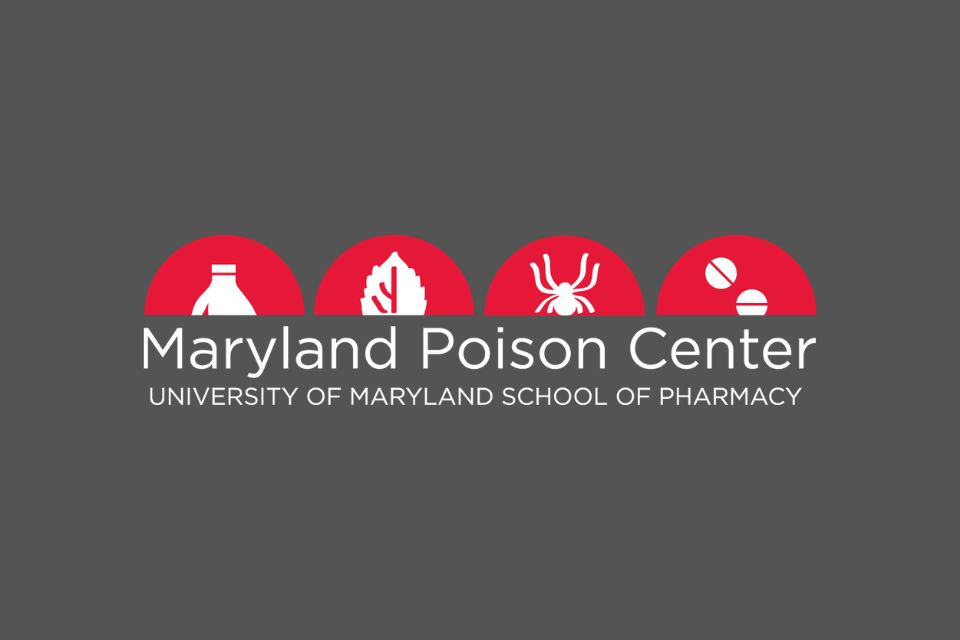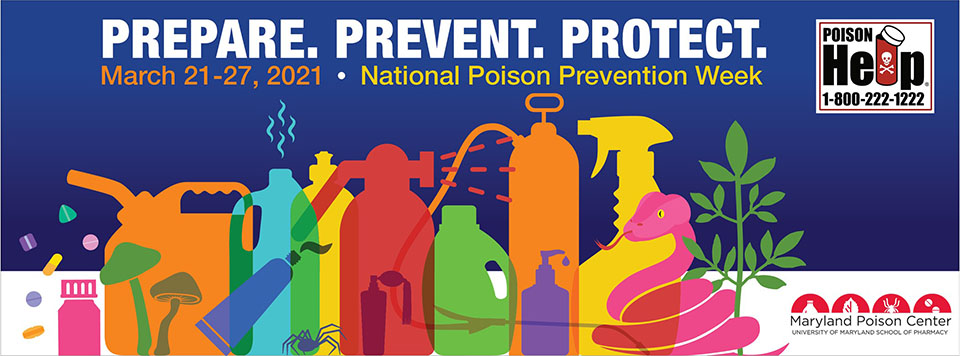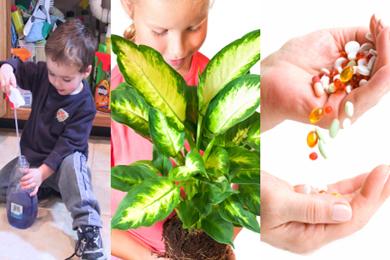Maryland Poison Center Celebrates National Poison Prevention Week 2015
Maryland Poison Center will join poison centers across the country in celebrating National Poison Prevention Week March 15-21.
By Becky Ceraul
March 13, 2015
In 1961, President John F. Kennedy named the third week of March as National Poison Prevention Week (NPPW) to help raise awareness about the dangers of poisonings and how to prevent them. This year, NPPW will be observed March 15-21, and will focus on several poison prevention-related themes:
- Monday, March 16 – Children Act Fast, So Do Poisons
- Tuesday, March 17 – Poison Centers: Saving Lives, Time and Money
- Wednesday, March 18 – Poisonings Span a Lifetime
- Thursday, March 19 – Home Safe Home
- Friday, March 20 – Medicine Safety
“The Maryland Poison Center (MPC), along with America’s other 55 poison centers, is committed to safeguarding the health and well-being of every American through poison prevention and free, confidential, expert medical services,” says Bruce Anderson, PharmD, DABAT, director of operations for the MPC. “Our poison center responds to calls 24 hours a day, seven days a week in order to help those who have been exposed to toxic substances.”
According to the American Association of Poison Control Centers (AAPCC), US poison centers answered more than 3.1 million calls, including approximately 2.2 million calls about human exposures to poisons, with more than half involving children younger than six, in 2013. More than 70 percent of the people who called with poison emergencies were managed on-site without referral to a health care facility, saving an estimated millions of dollars in medical expenses. In fact, poison centers save Americans more than $1.8 billion every year in medical costs and lost productivity.
The MPC, part of the Department of Pharmacy Practice and Science at the University of Maryland School of Pharmacy, is a 24-hour telephone service that offers free, fast, and confidential expert advice about poisonings and overdoses. Certified by the AAPCC as a regional poison center, the MPC has provided poisoning treatment advice, education, and prevention services to Marylanders since 1972.
“Poisoning can occur at any time and to anyone,” says Anderson, who is also an associate professor in PPS. “The MPC works 24/7 to help those who have been exposed to a poison or to answer the public’s questions about a potential poisoning. We also reach out to our communities with information about how poisonings occur and ways to prevent them. Prevention is the best possible medicine.”
Although approximately half of the calls received by poison centers involve children younger than six years old, teens, adults, and seniors are also at risk for poisoning. Download this informative fact sheet to learn more about the types of calls managed by the pharmacists and nurses who staff the MPC.
To help prevent poisonings in your home, follow these tips from the MPC:
- Keep the poison center phone number close at all times. Program the number in your cell phone. A poison center can be reached from anywhere in the United States by dialing 1-800-222-1222.
- Read and follow directions on the label before using medicines and household products.
- Follow the poison safety checklist to make sure all medicines, poisons, and harmful household products are stored out of the sight and reach of children.
- Keep all household products and medicines in their original containers. Never put chemicals or cleaning products in empty food or drink containers.
- Always ask for medicine in child-resistant containers, but remember that these containers are not child-proof. If given enough time, children can often open the safety caps.
- Know the names of plants in and around your home, and remove poisonous ones from the house and yard.
- Teach small children never to touch or taste something unless they ask an adult.
- Put medicines away after each dose, even if they will be taken again in a few hours.
- Have a carbon monoxide alarm in your home if you have a fireplace, wood burning stove, or other gas appliances.
NPPW is commissioned by the Poison Prevention Week Council, an organization of public and private partners committed to reducing unintentional poisonings and promoting poison prevention.
Families in the state of Maryland who would like more information about poison prevention are invited to request a Mr. Yuk packet for their homes. This packet contains poison safety information, Mr. Yuk stickers, telephone stickers, and a magnet that can help families prevent or prepare for poisoning emergencies.



